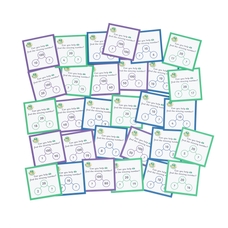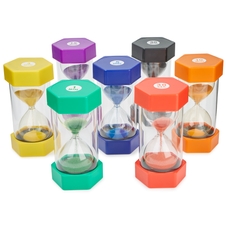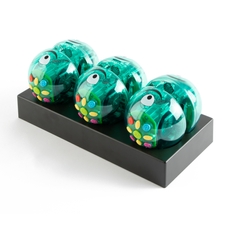EaRL Money Cards from Hope Education
EaRL Money Cards from Hope Education
Product code: HE1822275
Product Description
Encourage independent learning with these EaRL money cards from Hope Education, the perfect addition to use alongside the EaRL 100 square mat. Use EaRL to navigate the mat, selecting questions to answer, then simply turnover the card to check if you have the right answer. Introduce and nurture early programming skills into your classroom, whilst also adding an element of interest and delight with these maths related facts cards.
Features include, 25 cards in a pack, card Size: 110mmx110mm.
- Encourages independent learning in young children.
- Practise money questions and their related facts.
- Introduce and nurture early programming skills.
- Understand what algorithms are, how they are implemented as programs on digital devices, and that programs execute by following precise and unambiguous instructions.
- Design, write and debug programs that accomplish specific goals, including controlling or simulating physical systems; solve problems by decomposing them into smaller parts.
- Create and debug simple programs whilst using logical reasoning to predict the behaviour of simple programs.
Further Information
- Age Recommended from
- 3 Years
- Brand
- EaRL
- Key Stage
- Key Stage 1Key Stage 2
- Offers
- Reduced
Encourage independent learning with these EaRL money cards from Hope Education, the perfect addition to use alongside the EaRL 100 square mat. Use EaRL to navigate the mat, selecting questions to answer, then simply turnover the card to check if you have the right answer. Introduce and nurture early programming skills into your classroom, whilst also adding an element of interest and delight with these maths related facts cards.
Features include, 25 cards in a pack, card Size: 110mmx110mm.
- Encourages independent learning in young children.
- Practise money questions and their related facts.
- Introduce and nurture early programming skills.
- Understand what algorithms are, how they are implemented as programs on digital devices, and that programs execute by following precise and unambiguous instructions.
- Design, write and debug programs that accomplish specific goals, including controlling or simulating physical systems; solve problems by decomposing them into smaller parts.
- Create and debug simple programs whilst using logical reasoning to predict the behaviour of simple programs.
Further Information
- Age Recommended from
- 3 Years
- Brand
- EaRL
- Key Stage
- Key Stage 1Key Stage 2
- Offers
- Reduced





